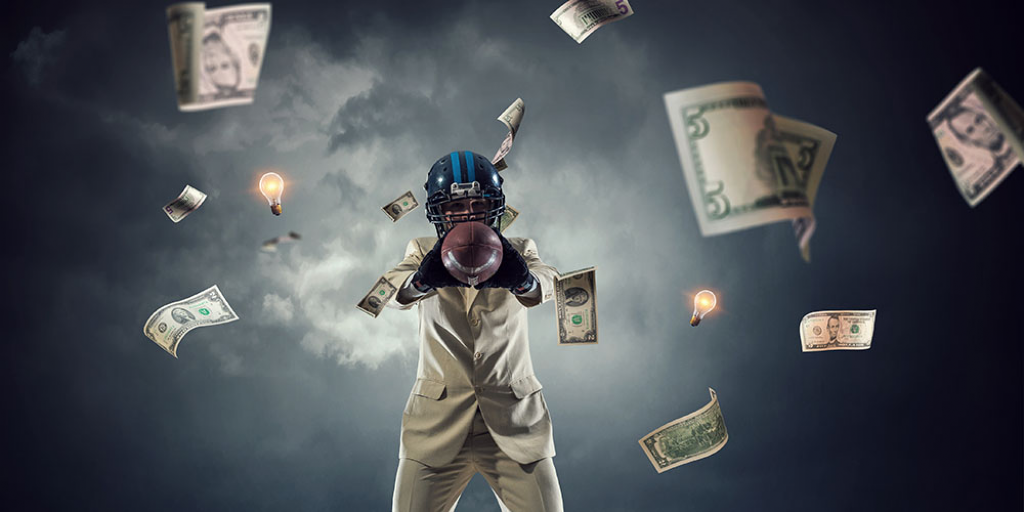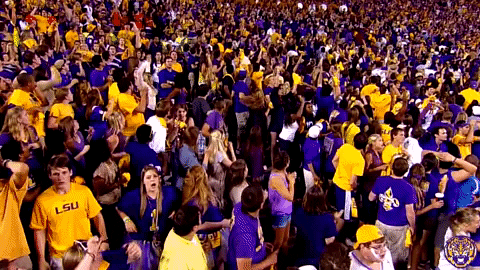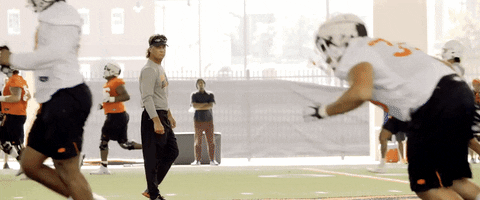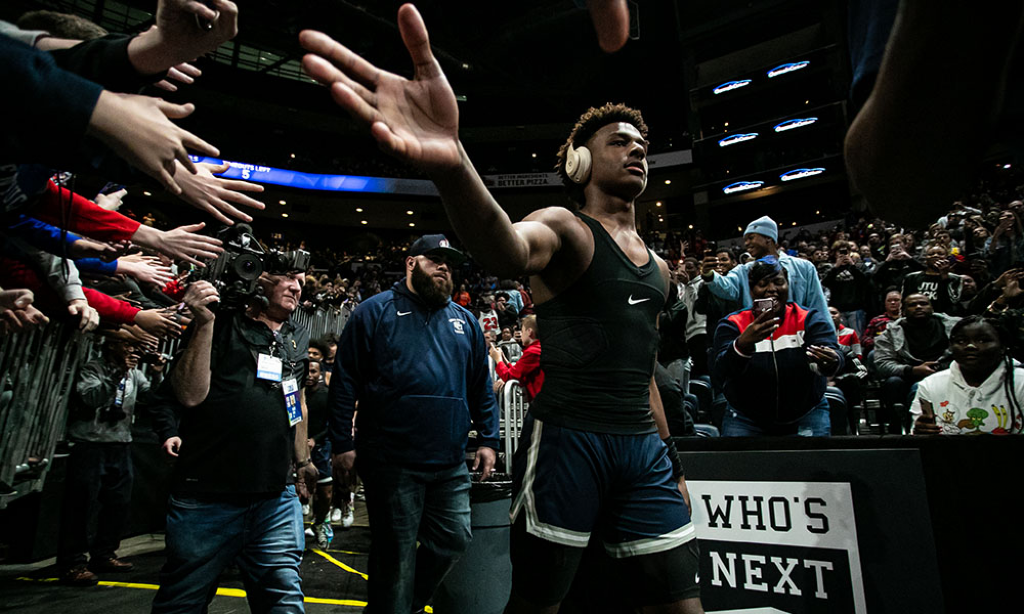College Athletes Profit from NIL Deals

- In 2019 alone, the NCAA's annual revenue accumulated more than $1.1 billion from college sports.
- The NCAA was reluctant to pay college athletes, citing their reasoning as free education, although this is not true for all college athletes.
- On July 1, 2021, the Supreme Court passed a federal bill stating that college athletes could receive compensation for their name, image, and likeness (NIL).
People play sports for different reasons, ranging from staying in shape to the hopes of playing in the pros. For those hoping to play in the pros, it usually starts young, meaning that somewhere in the world today, a kid with a basketball is shooting a jump shot while yelling "Kobe" or throwing a football with dreams of being the next Tom Brady. Their journey usually starts from playing in their yard to the little league to the school team.
There are over 8 million students who play sports during their high school years, and more than 460,000 play an organized sport during college. Those who play during college play under the National Collegiate Athletic Association (NCAA), the governing body of all major college sports that supports and broadcasts football, baseball, basketball, and soccer, to name a few.
Billions of dollars are made from college sports.
Collegiate athletes help bring millions of dollars to their universities, yet in the past, they have not been allowed to profit personally. As a result, the NCAA has faced much controversy and backlash regarding compensating the athletes that generate a high revenue stream. In 2019 alone, the NCAA's annual revenue accumulated more than $1.1 billion.

Credit: GIPHY
Tickets for high-profile college sport programs, like LSU and Alabama's football, can range from $100s of dollars to $1000s of dollars on the resale market for high-demand games.
Yet, despite earning over a billion dollars, the NCAA continued to be reluctant to pay college athletes. Their reasoning for not compensating was that athletes get access to free education via scholarships. However, not all student-athletes receive a scholarship, nor does that scholarship cover everyday expenses. More so, since most college athletes have a training schedule equivalent to a full-time job, working even a part-time job proved difficult.
Current and former student-athletes make their case for pay.
Richard Sherman, an NFL free-agent cornerback and former college athlete, argued against the NCAA's "free education" standing in a 2015 interview. He stated, "Show me how you're going to get all your work done when after you get out at 7:30 or so, you've got a test the next day, you're dead tired from practice, and you still have to study just as hard as everybody else every day and get all the same work done." The student-athlete experience highlighted by Sherman demonstrates that although the NCAA offers many college athletes free or partially free education, the extensive hours of practice prohibit them from taking full advantage of their educational benefits.

Credit: GIPHY
After many years of consistent complaints from current and former student-athletes and college sports spectators who have advocated for college athletes to get paid, a change finally happened. On July 1, 2021, a new federal bill was passed, stating that college athletes could receive compensation for their name, image, and likeness (NIL).
Supreme Court approves compensation for name, image, and likeness (NIL).
Despite the continued reluctance from the NCAA, the Supreme Court ruled in favor of college athletes to allow them to profit from their NIL. As stated in an article by the NY Times, the Supreme Court voted unanimously on this matter. It said, "NCAA could not bar relatively modest payments to student-athletes," meaning student-athletes are eligible to receive payments for endorsements, sponsors, and paid promotions as long as the payments are not ludicrous.
College athletes can now monetize themselves in multiple different ways. Those with a large social media following are using their respective platforms to promote their endorsements. Other athletes have created a line of merchandise to sell online to capitalize on their NIL. Overall, the ruling meant college athletes could now use the money made from their name, image, and likeness to support themselves and their families financially.
College athletes are profiting from endorsement deals.
Though the new rules established have only been in effect for less than two years, numerous athletes are experiencing the upside of the ability to profile for their NIL. Some well-known names in college sports have inked an endorsement with a known brand or major corporation.
Bronny James

Editorial credit: 1022 Project / Shutterstock.com
As a senior at California high school Sierra Canyon, Bronny James has signed NIL endorsement deals with Nike and Beats by Dre. He joins his father, Lebron James, who is also endorsed by both brands.
Olivia Dunne
Olivia Dunne is a gymnast for Louisiana State University and has over one million followers on Instagram and nearly four million on TikTok. Due to her extensive social media following, many companies are keen on signing her and using her NIL to increase their exposure. Though she has not yet publicly announced signing an endorsement deal, she hinted one might be imminent as her gymnastic highlights were being played in Times Square.
Quinn Ewers
The University of Texas quarterback launched an NFT campaign with Metabillia that will reportedly pay him $1 million, per Yahoo Finance.
Hercy Miller
The son of rapper Master P, Hercy Miller reportedly signed a 4-year contract with the app Web Apps America worth $2 million.
Cavinder Twins
Hanna and Haley Cavinder are college athletes for Fresno State's Women's Basketball Team. They signed an endorsement deal with the telecommunications provider Boost Mobile, elevating them as spokespeople for the company and promoting its products throughout the year.
Bo Nix
Bo Nix, the quarterback for Oregon, promoted Milo's Sweet Tea on Instagram shortly after the NIL rule went into effect.
The Money Wrap-Up
The NIL bill will heavily impact college athletes, as they can now generate income without penalty. According to the National College Players Association, 86% of college athletes come from families living below the poverty line. With the new bill passed, athletes can now profit from their NIL to build wealth, overcome generational poverty, or help them become financially stable throughout their college years, regardless of whether they make it to the professional level.